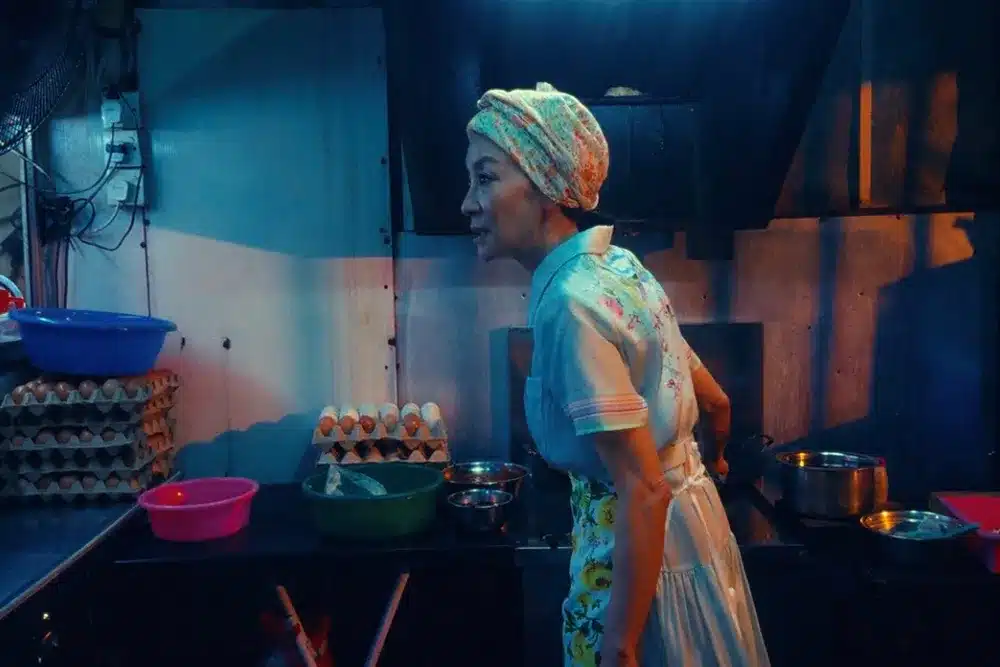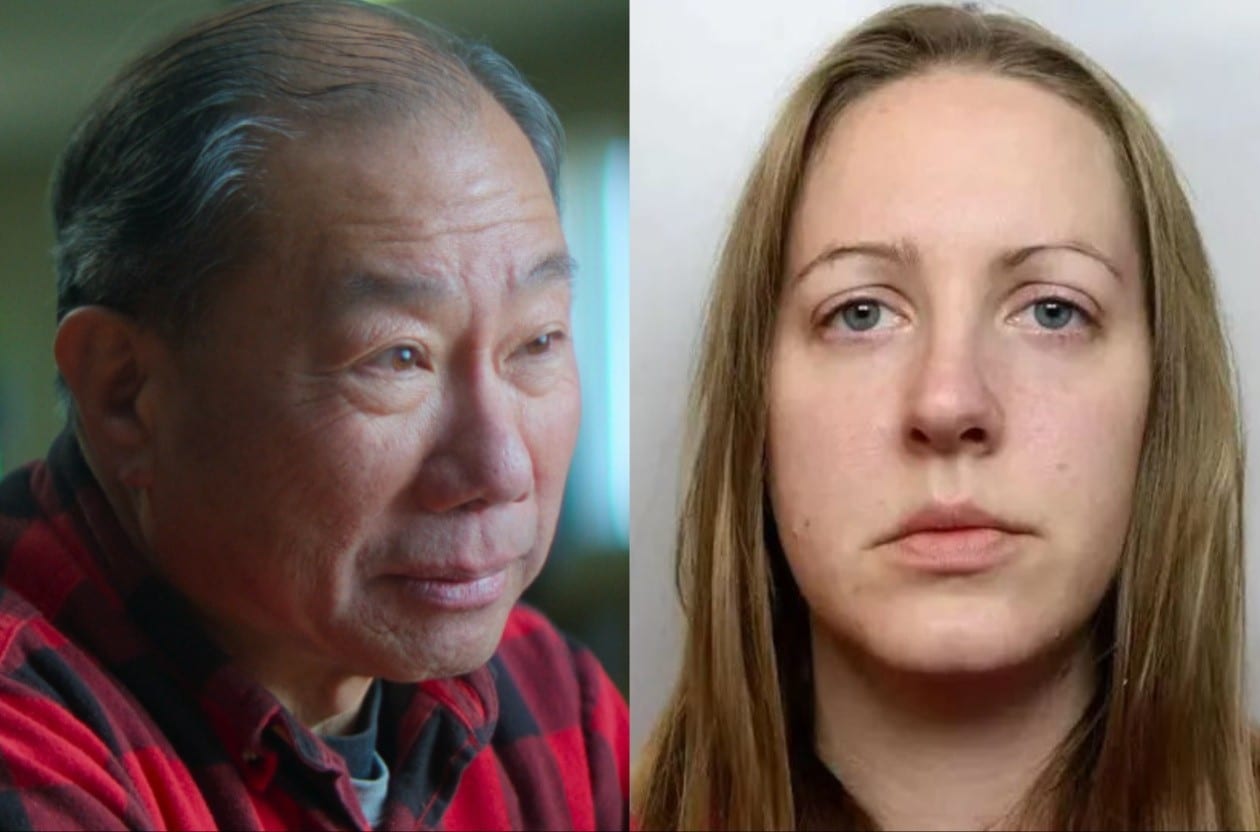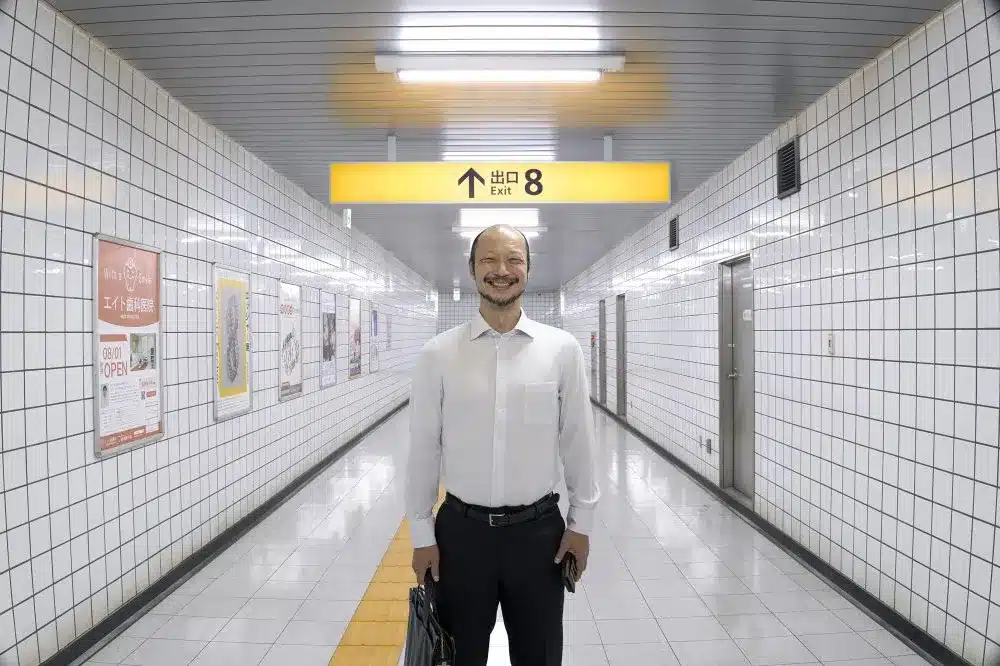Richard Linklater’s 2001 film Tape, a sharp, contained drama built on a single set and searing dialogue, made its mark by dissecting memory and responsibility. Now, more than two decades later, a new version, TAPE (2024), arrives from Hong Kong, taking that original play by Stephen Belber and placing it squarely in a different world, one grappling with its own specific currents of cultural change. This update is a profound re-examination, especially concerning how we confront uncomfortable truths about misdeeds and the people who commit them.
Director and co-writer Bizhan M. Tong, joined by editor Mitchell Tolliday, offered a fascinating window into the film’s origins during a recent Q&A at the Raindance Festival, which was moderated by Katrina Yung. They discussed how this new Tape doesn’t just restage a familiar conflict; it pushes us to rethink what accountability looks like, particularly when the accused isn’t the “monster” we expect.
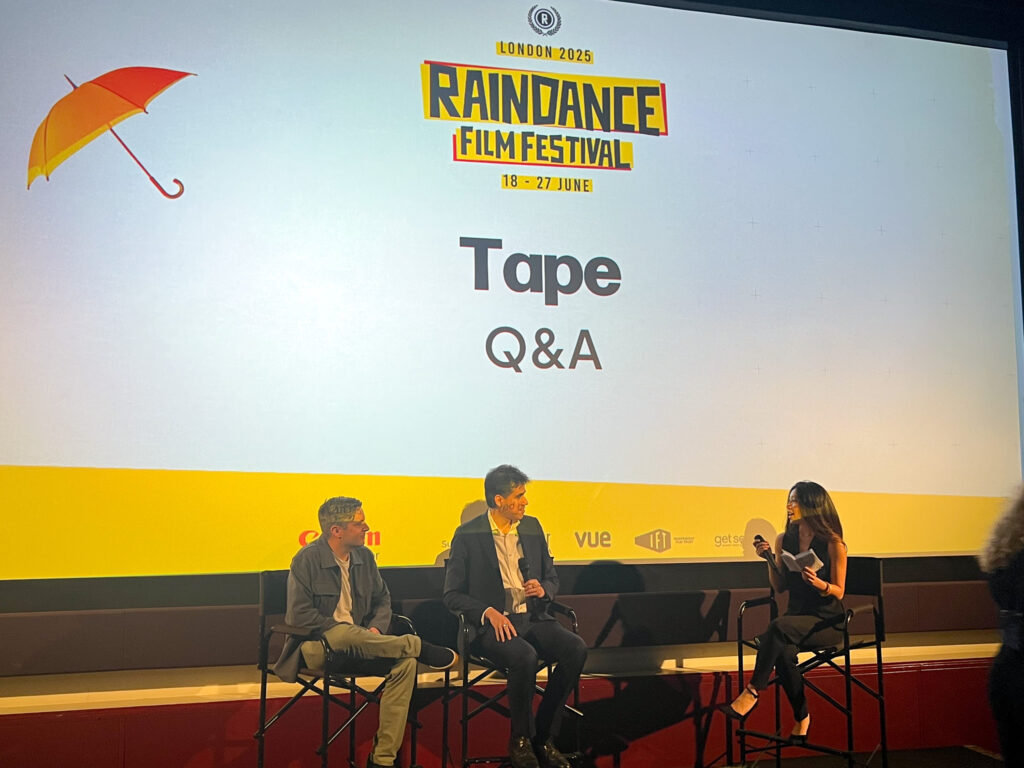
The Film’s Core: A Confrontation Reimagined in a New Context
TAPE (2024) centers on three former high school friends whose lives are irrevocably linked by a deeply troubling event from their past. The story unfolds as one character, Wing, orchestrates a reunion between his old friend Jon and Amy, a woman from their shared history. This meeting, set within the claustrophobic confines of a single room, quickly devolves into a tense confrontation. It is fueled by Wing’s intention to expose a long-unacknowledged secret, forcing all three individuals to grapple with their recollections and responsibilities regarding a past incident of sexual misconduct. The film, a Cantonese-language production, was made on a micro-budget of approximately £150,000, shot intensely over just seven days, largely in real-time, echoing the lean production of Linklater’s original.
The decision to bring this story to Hong Kong was a deliberate choice by director Bizhan Tong. Having been profoundly impacted by Linklater’s original Tape years ago, Tong noticed a critical distinction in how the #MeToo movement, which significantly reshaped public discourse in the West, had manifested in Asia. He observed “a pervasive culture of silence” in the region, where difficult issues were often quietly accepted, and discussions about sexual assault frequently remained private among women.
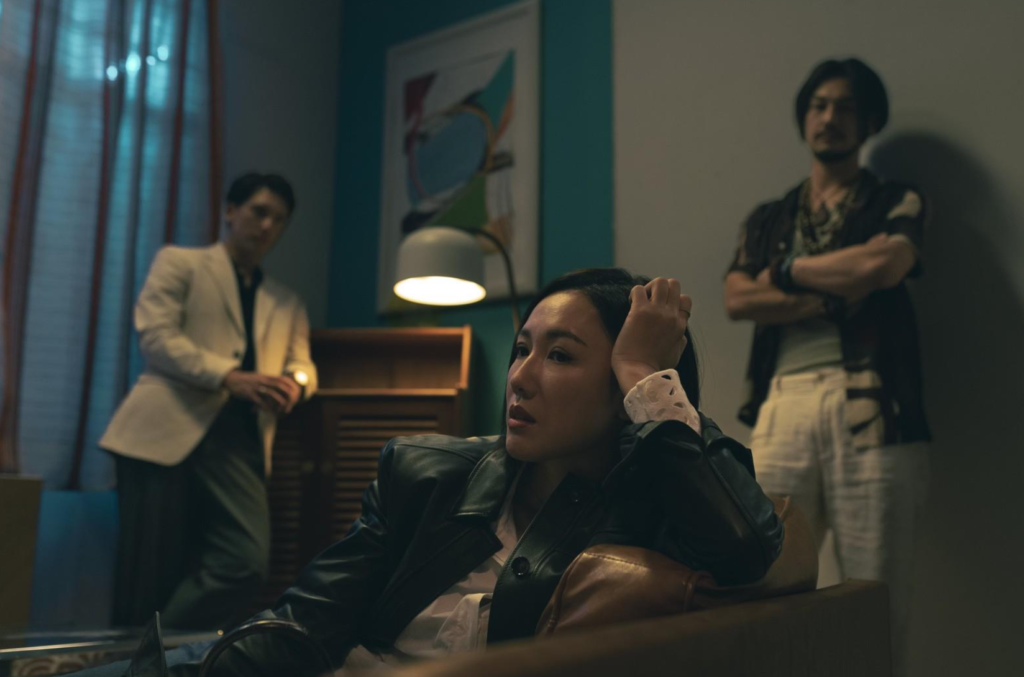
This observation convinced him that the story needed to be told in this new context, updated with modern technology to reflect today’s camera-obsessed world, shifting from audio cassettes to hidden cameras uploading directly to the cloud. This particular update underlines the contemporary relevance of surveillance and digital evidence in matters of accountability.
The Problem with Simple Villains and Cultural Silence
One of the most striking aspects of TAPE (2024) is its refusal to make things easy. The film deliberately avoids creating clear-cut heroes and villains, a choice that forces viewers to wrestle with ambiguity. This applies especially to Jon, one of the central figures, whose actions are the catalyst for the entire story.
Bizhan Tong made a point of this, explaining that the film avoids turning complex individuals into “simple monsters.” He suggested that when discussing figures accused of serious misconduct, “many people who commit heinous acts are individuals we consider friends, people we’d stand by, whom we think are generally good, decent people.” This observation cuts deep, challenging the comfortable idea that harmful actions only come from obviously bad people. By portraying Jon as someone who is not entirely monstrous, the film makes his actions, and the audience’s reaction to them, far more unsettling. This nuanced approach aims to reflect the challenging reality that accountability can be difficult when perpetrators do not fit a pre-conceived mold of villainy.
Read more: Remembering Vincent Chin: Why His Story Still Matters in 2025
This choice is particularly potent when viewed against the backdrop of the #MeToo movement’s reception in Hong Kong. While the movement gained significant traction in the West, its impact in Hong Kong has been markedly different. A “cultural silence” persists, often rooted in societal stigma and victim-blaming.

For instance, data indicates that approximately 90% of women in Hong Kong who experience sexual assault choose not to report it. Furthermore, local media has historically tended to “blame victims, stereotype abusers, and neglect women’s rights,” further complicating efforts to foster open dialogue. This silence also reflects broader socio-political shifts, including media restrictions and democratic backsliding, which have compromised the press’s ability to investigate such sensitive issues freely. TAPE (2024) directly addresses this void, aspiring to be the “conversation-starter” that Hong Kong needs.
The Shifting Ground of Truth and Amy’s Empowered Voice
TAPE (2024) retains the core idea of the original: a hidden recording device and conflicting versions of a past event. But the new film elevates this idea, using modern technology to explore how slippery truth can be. There aren’t just two sides to the story; there are multiple perspectives, often shaped by memory, desire, and trauma.
The film’s pivotal confrontation scene between Jon and Amy stands out for its bold directorial choice. Bizhan Tong chose to film this lengthy exchange in a single, unbroken shot, without music or quick cuts. He wanted the audience to judge for themselves. “As a filmmaker, I can control your emotions like a puppeteer; I can choose where to cut, what angle to show, I can add music,” Tong explained. “I didn’t want any of that. We had no music during that scene. We didn’t cut away because I wanted the audience to listen to what they have to say and to make a decision for yourselves. Did Jon rape her? Does Jon deserve this? What was Amy’s perspective? Watch the confrontation and decide for yourself.” This direct approach puts the burden of interpretation squarely on the viewer, reflecting the real-world difficulty of discerning truth when facts are contested.
A crucial development in this remake is its enhanced focus on Amy’s voice and agency. Unlike the original, this version deeply integrates the perspective of Selena Lee, who plays Amy, and writer Bonnie Lo, ensuring the film speaks authentically to the experiences of women in Hong Kong. Lee even crafted extensive backstory for her character, shaping a portrayal that avoids typical victim tropes. As Tong explained, Amy “doesn’t want to believe she’s a victim.

While she accepts that this happened to her, she feels that if she embraces the label of ‘victim,’ she loses.” This nuanced internal struggle culminates in powerful moments, allowing Amy to ultimately define her own future and control her own story. The film’s inclusion of intro and outro sequences depicting the characters fifteen years earlier, framed as “two tapes” from 2009 and 2024, further reinforces how memory can be fluid, constantly re-edited by new information and perspectives over time.
The Quiet Complicity of Friendship and Unexpected Power
Beyond Jon’s actions, TAPE (2024) also compels us to consider the role of Wing, Jon’s friend, who sets the confrontation in motion. His involvement adds another layer to the discussion of accountability, moving it beyond just the primary actors. How do friends respond when someone they care about is accused? What is their responsibility?
The film shows how loyalty can blind, and how inaction can, in its own way, shape outcomes. Wing’s choices, his attempts to mediate, and his own self-interest, all add to the film’s complex portrayal of human relationships under pressure. This aspect pushes the audience to consider not just direct culpability, but also the wider circle of influence and responsibility that surrounds such events. It forces an uncomfortable look at how personal loyalties can complicate the pursuit of justice.
An audience member offered a particularly keen observation that the film captures well: the idea of power in a #MeToo situation isn’t always about obvious authority. Sometimes, it’s far more subtle. “He has power over her because she has a crush on him. And that in itself is a type of power,” the audience member stated.

They continued, noting that “in most cases, the #MeToo situation isn’t that dramatic; it happens in a very day-to-day scenario, and that’s why it’s really difficult to manage, to understand for the victims and for others. So I think that’s quite smart in the storytelling; that makes it really relevant for people watching.” This astute point highlights how TAPE (2024) moves beyond conventional portrayals of power imbalances, making the film’s themes disturbingly relevant to everyday life. It underscores that power can exist in many forms, and its abuse is not always tied to a formal hierarchy.
A Call for Honest Reflection
TAPE (2024) is ultimately a film that demands reflection. It challenges our assumptions about who is capable of harm, how truth is constructed, and what our responsibilities are when confronted with difficult accusations. By setting this story in Hong Kong, a place where open discourse on sexual misconduct is less common, the film serves as a powerful catalyst. It’s a compelling argument for moving past simplistic judgments and engaging with the messy, uncomfortable realities of human behavior.
The film doesn’t offer easy answers, but it certainly pushes you to ask harder questions. It aims to open up conversations about sexual assault in Hong Kong, where victims often face immense societal pressure and judgment, hoping to encourage a significant shift in how such experiences are addressed and understood.
Read more: Ekin Cheng and Natalie Hsu to Receive Top Honours at New York Asian Film Festival
The film’s international distribution, with a U.K. premiere slated for the 2025 Raindance Film Festival, further amplifies its potential impact. This global reach underscores that while the issue is explored through a specific cultural lens, the themes of accountability, memory, and the struggle for justice are universal, transcending geographical boundaries and inviting a wider global conversation.



